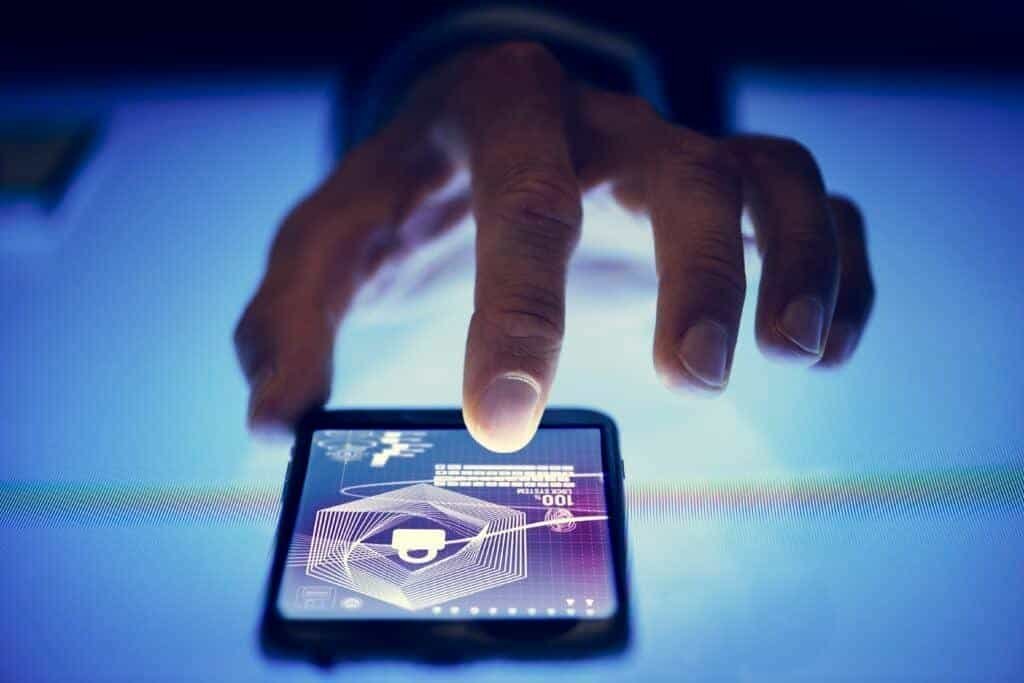How to recover a Facebook account hacked email and phone changed

We may earn a small fee from the companies mentioned in this post.
Discovering that your Facebook account has been hacked, and your email and phone information altered can be a disheartening experience. The implications of having a ‘facebook hacked’ account are serious, and immediate action is crucial to secure your linked email accounts and prevent further damage.
But fear not, for you have come to the right place to regain control and secure your digital life. In this blog post, we’ll guide you through the process of recovering a “Facebook account hacked email and phone changed” scenario and offer insights on how to prevent future hacks.
Identify a hacked Facebook account and take immediate action to secure it.
To recover a Facebook account where the email and phone have been changed by a hacker, follow these steps:
Identify the Hack: Recognise unauthorised activity, such as unfamiliar posts or messages. If you can’t log in, it’s a clear sign of a hack
Report to Facebook: Use the “Report Compromised Account” feature on Facebook’s help center. If you’re logged in, navigate to “Settings” > “Security and Login” > “Get Help From Friends” to select trusted contacts who can help you regain access
Verify Your Identity: Be prepared to provide identification, such as a driver’s license or passport, to prove ownership of the account
Secure Your Account: Once recovered, change your to a strong, unique one. Enable two-factor authentication (2FA) for added security and review your trusted devices, removing any you don’t recognise
Prevent Future Hacks: Regularly update your security settings, be cautious of phishing attempts, and never use the same password across multiple sites
Help Others: If you see a friend’s account impersonated, report it to Facebook and share these recovery steps
By following these steps, you can regain control of your Facebook account and help ensure it remains secure against future unauthorised access.
Recognizing the Signs of a Hacked Facebook Account
Recognizing the signs of a hacked Facebook account is crucial to taking swift action and regaining control. If you notice any of the following signs, it may indicate that your Facebook account has been hacked:
Unauthorized login attempts or suspicious activities on your account
Changed profile information, such as your name, email address, or password
Posts or messages sent from your account that you didn’t write
Friend requests sent to people you don’t know
Unusual account activity, such as logins from unfamiliar locations or devices
If you suspect that your Facebook account has been hacked, follow the steps below to minimize the potential damage.
Identifying a hacked Facebook account

Do you notice any strange activity in your account, like posts you didn’t make, messages being sent to people you don’t know, or unexpected friend requests? If so, it’s possible that you’re facing a Facebook problem, as your account might have been compromised.
Contact the Facebook support team right away for assistance. Some clear indicators include unfamiliar posts, messages, or changes in personal information on your Facebook account, such as your account’s email address. Another red flag is dubious activity in your email account, such as emails sent without your consent, or abnormal activity in your phone account, like calls or texts you didn’t initiate.
If you notice any of these signs, it’s likely that your Facebook password has been compromised, and you need to take action to recover your account using the “forgot password” option, after which your password changed will be confirmed.
Recognizing these warning signs promptly can reduce the damage caused by hackers. The quicker you spot the issue, the higher your chances of regaining account control and safeguarding your personal information.
Immediate actions to take when your account is hacked

Upon identifying that your Facebook account has been hacked, swift action is necessary to mitigate any further damage. Here are the steps you should take:
Change your password and adjust your security settings.
Notify your friends and followers about the hacked account by sending a message to inform them of the situation.
Report the hacked account to Facebook by submitting the relevant form on their website and providing your recovery email address for account verification.
Beyond securing your Facebook account, checking for unauthorized access is also crucial. Review your account activity log for any suspicious activity, such as multiple attempts to log in with the wrong password. If your Instagram account is linked to your Facebook account, make sure to check for any signs of compromise there as well.
Undertaking these immediate actions aids in regaining account control and thwarting further hacker intrusion. Remember, acting fast is the key to successful recovery and minimizing the impact of the hack, especially if the hacker forgot some crucial steps in covering their tracks.
Checkout our informative blogpost on Vinted online chat – Get the tips and latest advice
Recovering a hacked Facebook account with changed email and phone

Recovering a hacked Facebook account with altered email and phone number might seem like a daunting task, but following a step-by-step guide will make the process smoother, especially when dealing with Facebook email issues related to your Facebook account.
The subsequent sections guide you through the process of locating your account, alerting Facebook about the hacked account, and establishing your identity to regain access.
Step 1: Locate your account
To kick-start the recovery process, you need to locate your hacked Facebook account. Visit facebook.com/login/identify and enter the email address, phone number, or facebook profile url associated with your account. This step will help you find and select your account, even if the hacker has changed the email and phone number linked to it.
Once you’ve successfully located your account, move on to the next step: reporting the compromised account to Facebook.
Step 2: Report compromised account to Facebook
Upon locating your account, you should report the compromised situation to Facebook and submit the necessary information to start the recovery process. To report the hacked Facebook profile, navigate to the profile page and select the “More” option (the three horizontal dots).
By reporting the issue, you’re alerting Facebook to the problem and making it easier for them to help you regain access to your account.
Step 3: Verify your identity
Verifying your identity is the final step in reclaiming your hacked Facebook account. Facebook has a confirmation process in place to ensure that the rightful owner is attempting to regain access. This process usually takes 1 to 5 business days.
Once your identity has been confirmed, you’ll regain access to your account and can take steps to secure it further.
Checkout our informative blog on protecting yourself from Vinted Scammers
Securing your Facebook account after recovery

Now that you’ve successfully recovered your hacked Facebook account, it’s time to ensure that it remains secure. Here are some steps you can take:
Create a new, strong password by utilising a password generator to obtain a unique and secure password.
Consider changing the associated email address for added security.
Enable two-factor authentication for an extra layer of protection.
In the “General” section of your account settings, remove any unfamiliar contact information, such as phone numbers, email addresses, and security code, that the hacker may have added. This step ensures that your account remains under your control and prevents future unauthorized access.
Lastly, enroll in alerts that inform you when Facebook detects a sign-in on an unfamiliar web browser or mobile device. By staying vigilant and regularly reviewing your Facebook account security settings, you can greatly reduce the risk of future hacks and keep your Facebook page secure.
You may find our informative blog on protecting yourself online useful
Log out of All Devices
If you still have access to your account, log out from all devices immediately. This can be done by going to “Settings & Privacy” > “Settings” > “Security and Login” > “Where You’re Logged In.” From there, you can log out of all sessions. This will prevent the hacker from accessing your account from any device.
Update Your Facebook Password
If you can still access your account, change your password immediately. Go to the Facebook login page and click on “Forgot password.” Enter your account’s email address or phone number and follow the instructions to reset your password. Make sure to choose a strong and unique password that is different from your previous password.
Review Account Activity
Check your recent Facebook account activity to see if there have been any unauthorized actions. In the Security Settings menu, go to Password and Security (or “Security and Login” on a desktop) > Where you’re logged in. If you see multiple unauthorized logins, it is recommended to log out of all of them.
Preventing future hacks: proactive measures

Adopting proactive measures that safeguard your Facebook account is key to preventing future hacks. Here are some steps you can take:
Use strong, unique passwords, and never share them with anyone.
Be cautious with suspicious links, and avoid clicking on them if you’re unsure of their legitimacy.
Regularly review your account security settings to ensure that your account remains protected against potential threats.
Implementing these measures not only secures your Facebook account, but also aids in protecting your personal information from falling into the wrong hands. Prevention is always better than cure, so be proactive in maintaining the security of your digital presence.
Enable Two-Factor Authentication (2FA)
Once you have changed your password and secured your linked email, you should enable two-factor authentication for your Facebook account. This adds an extra layer of security by requiring a code from your mobile device in addition to your password. To enable 2FA, go to “Settings & Privacy” > “Settings” > “Security and Login” > “Two-Factor Authentication.” Follow the instructions to set up 2FA using an authentication app such as Google Authenticator.
By following these steps, you can help protect your Facebook account from further unauthorized access and regain control of your account.
How to help friends with hacked accounts

If you have friends who have fallen victim to hacked Facebook accounts, you can lend a helping hand by following some simple steps. First, report any impersonation accounts by navigating to the fake profile page and selecting the “More” option (the three horizontal dots). This action will alert Facebook to the fake account and expedite its removal.
Next, share the recovery steps outlined in this blog post with your friends and encourage them to take preventive measures to secure their accounts. By offering support and guidance, you’re not only helping your friends regain control of their Facebook accounts but also promoting a safer digital environment for everyone.
In conclusion, recovering a hacked Facebook account with changed email and phone number may seem like a daunting task, but by following the steps outlined in this blog post, you can successfully regain control of your account and secure it against future hacks.
Remember, vigilance and proactive measures are essential to maintaining the security of your digital presence. Stay informed, and protect yourself and your friends from the perils of hacking.
Can I contact Facebook about my account being hacked?
You can contact Facebook customer service to report that your account may have been hacked and get help in regaining access. Visit the Facebook Help Center and select “Report a login issue” followed by “I think my account was hacked or someone is using it without my permission” to get started. Alternatively, you can visit the website https://www.facebook.com/hacked for further guidance.
Do I need to do anything if my Facebook has been hacked?
If your Facebook has been hacked, you should immediately change your password and security settings, inform your friends and followers, and report the incident to Facebook.
Can you recover Facebook password without email and phone number?
You can use your Facebook URL to recover your password if you don’t have access to your email or phone number. Go to the “Forgot Password” link on the login page and enter your Facebook URL; Facebook will send you a verification code that you can use to reset your password.
How can I locate my hacked Facebook account?
Visit facebook.com/login/identify and enter the associated email address or phone number to locate your hacked Facebook account.
How can I secure my Facebook account after recovering it?
To secure your recovered Facebook account, create a strong password, update contact information, and enable two-factor authentication.
Useful reference sites
Facebook Help Center: The official help center offers step-by-step guides on how to recover a hacked account, even if the email and phone number associated with the account have been changed.
Cybersecurity & Infrastructure Security Agency (CISA): CISA provides resources and best practices for securing online accounts and protecting personal information.
StaySafeOnline: Powered by the National Cyber Security Alliance, StaySafeOnline offers tips and resources to help you understand and navigate the security risks associated with online platforms, including Facebook.
Kaspersky Daily: Kaspersky’s blog offers a wealth of information on various cybersecurity topics, including steps to recover hacked social media accounts.
Norton by Symantec: Norton’s blog provides valuable insights and guides on how to deal with hacked accounts and how to protect yourself online.
With over three decades of experience in the heart of London’s financial sector, I have dedicated my career to the pursuit of robust cybersecurity practices and IT leadership. As a Certified Information Systems Security Professional (CISSP), Certified Information Security Manager (CISM), Certified Chief Information Security Officer (C|CISO), Certified Ethical Hacker (CEH), and Computer Hacking Forensic Investigator (CHFI), I bring a wealth of knowledge and expertise to the table.
My journey in the field of cybersecurity has not only been about personal growth but also about sharing my insights with others. As an international speaker, I have had the privilege of addressing audiences worldwide, discussing the importance of cybersecurity in today’s digital age. My passion for knowledge sharing extends to my work as an author and blogger, where I delve into the complexities of cybersecurity, offering practical advice and thought leadership.
In my role as a CISO and Head of IT, I have overseen the development and implementation of comprehensive information security and IT strategies. My focus has always been on creating resilient systems capable of withstanding the evolving landscape of cyber threats.
My Master’s degree in Cybersecurity has provided a solid academic foundation, which, when combined with my practical experience, allows me to approach cybersecurity from a holistic perspective.
I am always open to connecting with other professionals in the field, sharing knowledge, and exploring new opportunities. Let’s secure the digital world together.

